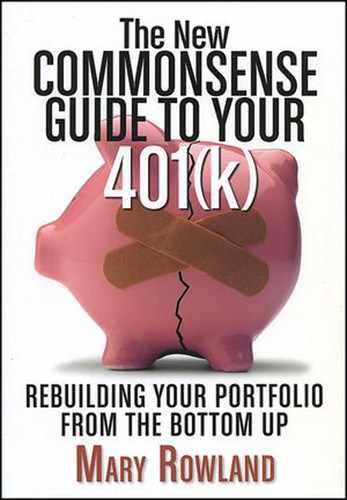NOT SO LONG AGO, investors were advised to buy funds based on the fund's objective, such as "aggressive growth" or "income" or "growth and income." But the labels were broad and confusing. Two aggressive growth funds were likely to pursue two entirely different strategies in search of growth.
As investors have grown more sophisticated, they've begun to look at funds based on the manager's investment style. By style, I mean chiefly two things: What size companies does the fund buy, and what method does it use to select them? You should keep investment style in mind as you invest your 401(k) portfolio as well.
The two key investment styles used by stock investors are value and growth. Value investors look for companies with a hidden value not reflected in the stock price. That's done in myriad ways. Outstanding Investor Digest, an excellent newsletter for the real hard-core investors, devotes more than sixty-five pages in each issue to exploring the ways investors like Warren Buffett of Berkshire Hathaway make investment decisions. I interviewed Henry Emerson, editor of this quirky publication some years ago. Like most people who put together a serious publication based on their passion—and maybe their search for truth—Emerson is a fascinating guy, perhaps a genius, who lives and breathes value investing.
Some of his investors might poke around in bankruptcy filings. Many look for companies that hold assets like real estate that could be sold for a gain. They look at comparable companies in the same industry to get an idea of a stock's potential. Most look for some catalyst, like a new chief executive, that might unlock the hidden value in a company. Many value investors like companies with a low price/earnings (P/E) ratio. The P/E ratio shows the relationship of the stock price to earnings. It could be last year's earnings, this year's earnings, or projected earnings. No formula is foolproof. One value investor, John Gunn, co-manager of Dodge & Cox Stock, looks for cheap stocks and adds to positions when prices fall. He also likes financials, so when companies like American International Group (AIG) and Fannie Mae began to slide in late 2008, he loaded up on these stocks. But this time financials did much worse than the rest of the market. At least for the end of 2008 and into 2009, the market had changed drastically and seemed to have thrown out all the rules. "Like Dorothy in The Wizard of Oz, we weren't in Kansas anymore," Gunn told the Wall Street Journal in April 2009. "Well let's sit on the sidelines and watch this game a little bit."[9]
Growth investors don't care about any of this stuff. They believe that rapidly rising corporate earnings are the single most important factor driving stock prices. Many of them don't care at all about measures that seem to indicate that a company is overpriced by some traditional valuation. They look for growth!
Some growth managers are called momentum investors because they buy stocks based on earnings momentum. They might use a computer program, for example, to look for "earnings surprises," or those companies that report earnings higher than the consensus of Wall Street estimates. Some growth managers claim they do not even know what business their companies operate in.
Academics have done considerable research to try to determine which investment style is more successful—value or growth. What they've concluded is that both do well in different market environments. If you are using actively managed funds, consider including both investment styles.
Morningstar Mutual Funds categorizes funds based on investment style. In addition to value and growth styles, Morningstar looks at company size. A great deal of evidence shows that small companies have more growth potential over time than big, well-established companies. Many small companies also fail. Small-company stocks run in cycles; they outperform during some periods and underperform in others. So a diversified portfolio would include large-company and small-company growth and large-company and small-company value. Many 401(k) plans now offer managed target-date funds or managed accounts so that someone else makes these decisions for you. But you can't assume that their decisions are always correct.
[9] Shefali Anand and Karen Damato, "What the Past Teaches Us about Today," Wall Street Journal, April 6, 2009, http://online.wsj.com/article/SB123862046764979775.html.
